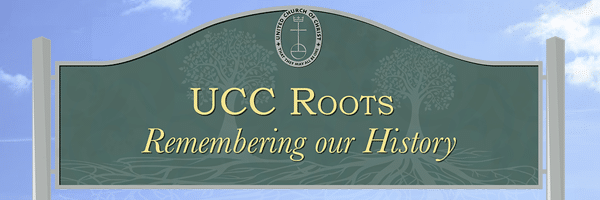Lemuel Haynes: Recognized in Vermont in 2018

He was an illegitimate child in Puritan New England. His mother was a white servant girl and his father was an African slave. A few months after his birth in West Hartford, CT his mother abandoned him and he spent his early years as an indentured servant. Yet Lemuel Haynes (1753-1833) is someone to remember. Last fall, the Vermont Division for Historic Preservation dedicated a Historical Marker to honor his life and thought. His story is part of our UCC past.
After his indenture expired, during the Revolutionary War Haynes served as a ”minuteman.” Later he studied with clergy to become a minister and was ordained in 1785 — the first African-American minister ordained in a mainstream denomination in the United States.
For two years, Haynes served a Congregational church in Torrington, CT. New members were joining the church and although he was well received, racial prejudice among some influential members prevented his installation. Finally, in 1788, he moved his family to the wild frontier of Vermont where he became pastor at West Parish of Rutland. His church grew from 42 members to about 350 during his thirty-year ministry. He was a black pastor in a white church and Vermont was a society of independent settlers.
Haynes preached and wrote about the slavery issue repeatedly. When white Christians wanted to liberate slaves and send them back to Africa (the Colonization movement), Haynes argued that the revolutionary war promised “liberty” for all Americans. He wrote extensively about how combining “Republican ideas” and “Calvinistic theology” could end slavery and cultivate interracial accord. By blending new American political convictions and longstanding Christian theological ideas, Haynes insisted that freeing slaves would do more than simply liberate them. Rather, ending slavery would provide happiness and security for all citizens throughout the new nation. Haynes never faltered in his efforts to convince people of the “equality of all [humanity] before God.”
Contributor: Bill Whiteman
Related News
What Can We As Churches Do to Care for God’s Creation?
As Christians, we are called to care for all of creation: land, water, air, animals, plants,...
Read MoreIn Midst of Anti-Immigrant Discourse, People of Faith Must Offer a Prophetic Welcome
In the midst of the 2024 presidential election, anti-immigrant rhetoric is on the rise. A...
Read MoreJPANet February 2024 Newsletter
Happy new year advocates! Each month we ask UCC advocates to help us unpack the complex...
Read More
